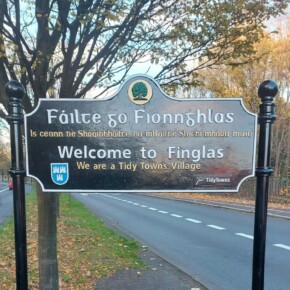Percentage of uninsured private vehicles on Irish roads halves
Padraig Conlon 28 Apr 2025
The percentage of uninsured private vehicles on Irish roads has almost halved following the introduction of the new Irish Motor Insurance Database (IMID) system, aimed at assisting law enforcement to easily detect uninsured drivers.
According to research conducted by the Motor Insurers’ Bureau of Ireland (MIBI), private uninsured vehicles represented 4.2% of the overall private fleet across the Republic of Ireland in 2024, an almost 50% reduction from when the same analysis was undertaken for 2022 and the percentage total stood at 8.3%.
In 2024 the MIBI has found there were a total of 101,881 uninsured private vehicles within the overall total of 2.4 million.
By comparison, in 2022 the number of uninsured private vehicles stood at 187,803 within an overall private vehicle total of 2.25 million.
This also means the number of uninsured private vehicles has dropped from 1 in every 12 in 2022, to 1 in every 25 last year.
Following the development of the Irish Motor Insurance Database (IMID), for the first time the MIBI has also been able to examine the number of uninsured non private motor vehicles, broadly categorised as ‘commercial vehicles’, through the availability of enhanced insurance data.
Within the ‘commercial vehicles’ category there are generally two different means by which insurance is provided.
Firstly, some are insured on an individualised basis, with specific vehicles tied to each policy.
Secondly, others use fleet or motor trade policies, where the insurer allows for the motor insurance to be transferred from one vehicle to another within a specific group of vehicles.
The details for these vehicles are required by law to be added to the National Fleet Database (NFD), which is a dedicated subsection of IMID.
Since November 2023, fleet and motor trade policy holders who do not provide the required information to the NFD are committing an offence and are liable to be prosecuted and subjected to fines of up to €500 per vehicle.
The MIBI estimates approximately 425,000 fleet and motor trade vehicles should be listed on the NFD. So far the details for 364,889 have been provided.
The MIBI’s analysis shows that within the combined ‘commercial vehicles’ category, there are a total of 710,708 vehicles on Irish roads and 108,671 of those vehicles are either uninsured or have not yet been added to the NFD.
This means that 15.3% commercial vehicles (1 in 6) are breaking motor insurance laws as they are either not insured or the policy holders have not uploaded their fleet or motor trade vehicles to the NFD.
The MIBI undertakes this research by contrasting the number of motor vehicles paying motor taxes with the number of vehicles who have active insurance policies.
Speaking about this new analysis, David Fitzgerald, CEO of the MIBI said, “It is very encouraging to see the impact that the new detection system is already having on the number of private uninsured vehicles on our roads.
Following its introduction the number of uninsured private vehicles has practically halved, which is good news for all road users and anyone concerned about Irish road safety.
“From early in its development, we believed IMID would represent a powerful weapon in the battle against uninsured driving and we can now see that theory being turned into reality.
“Following the introduction of this system, last year Gardaí were able to seize 18,676 vehicles in 2024 and issue a further 26,094 summons and charges.
“This system allows Gardaí to see in seconds if a vehicle is uninsured or has not been added to the database, allowing them to act quickly in apprehending any offenders.
“While progress has certainly been made, there is clearly additional work to do to combat illegal uninsured driving. This is particularly apparent in the data for commercial vehicles, where we see a higher proportion of vehicles that are either uninsured or not uploaded to the National Fleet Database by their fleet owners or motor traders.
“The fleet data is now being used by Gardaí across the frontlines and given the high number of fleet or other commercial vehicles which are not fulfilling their legal motor insurance obligations we anticipate there is likely to be a significant number of offenders identified and apprehended.
“Given these developments, we would encourage any fleet owners or motor traders who have yet to add all their vehicle details to the database to act now. Otherwise they can expect to have their vehicles stopped and potentially seized by the Gardaí in the months ahead,” Mr. Fitzgerald concluded.











